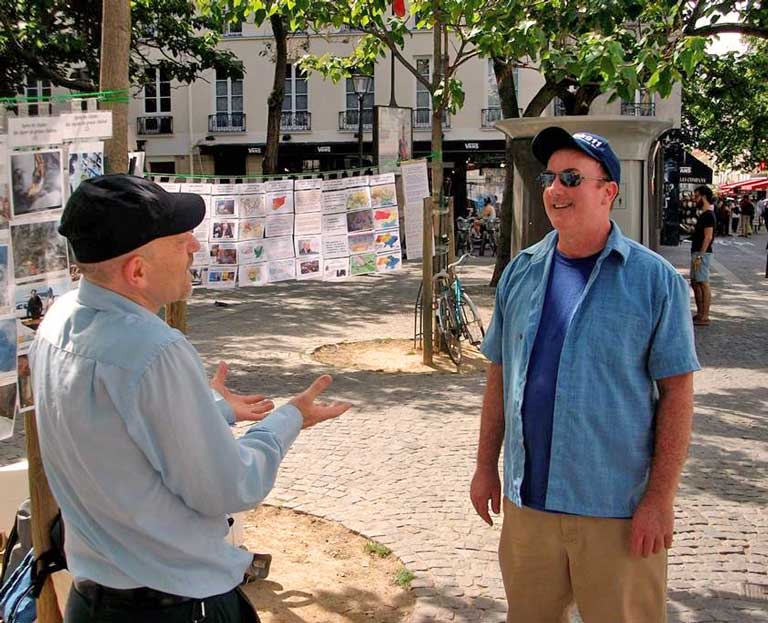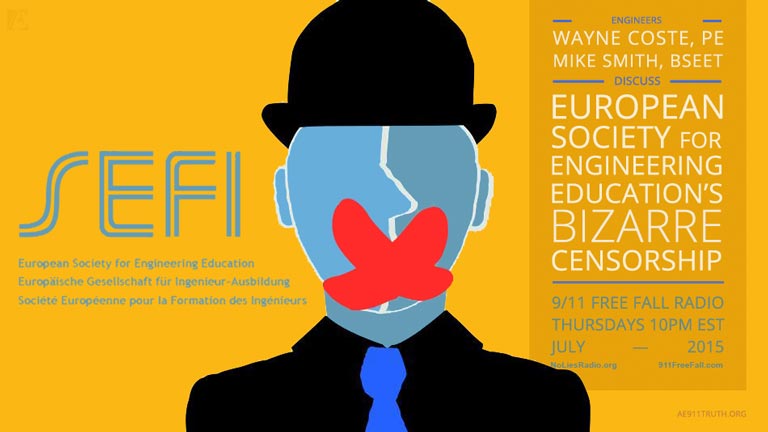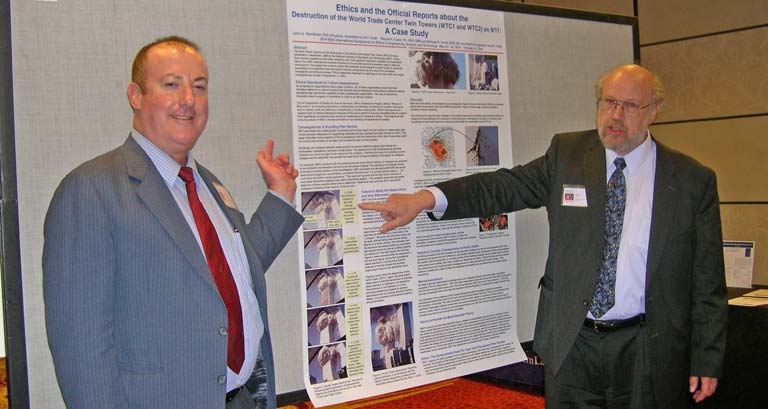"If a conference such as SEFI 2015 cannot address the ethical lapses of the engineering peer review process, what venues are available to demand that engineers adhere to the ideals embodied in their various codes of ethics?" — Wayne Coste and Michael Smith
WERE AUTHORS' STATEMENTS LIBELOUS? OR WAS CASE STUDY TOO CLOSE TO TRUTH FOR COMFORT?
By AE911Truth Staff
Last month, the European Society for Engineering Education (SEFI) rescinded its approval for engineers Wayne Coste and Michael Smith to present their paper at the organization's 43rd annual conference in Orléans, France, just prior to participants' arrival at the conference.
The paper, titled "The World Trade Center Analyses: Case Study of Ethics, Public Policy and the Engineering Profession" and co-authored by R. M. Korol of McMaster University, questions the ethics and credibility of those who speak for the engineering profession. Specifically, it critiques the unscientific conclusions and ethics failures of an article written by Northwestern University engineering professor Zdeněk P. Bažant, "What Did and Did Not Cause the Collapse of WTC Twin Towers in New York," that was published in respected professional journals after the destruction of these New York City skyscrapers on September 11, 2001.
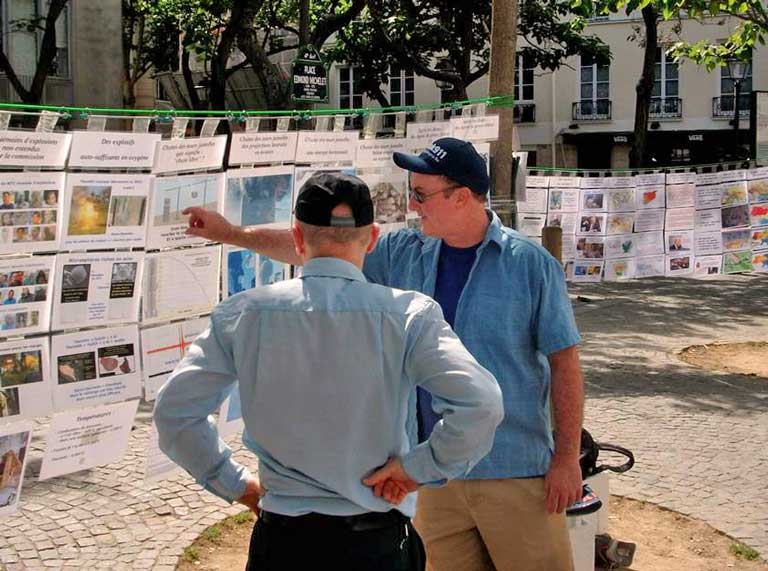
Though their paper was peer-reviewed by the SEFI conference's scientific committee and was subsequently accepted and scheduled for presentation, the scientific committee then did an about-face after two committee chairmen overruled the scientific committee's recommendation and withdrew approval at the last minute. The reason SEFI gave for pulling the paper had nothing to do with the technical veracity of its content or its conclusions, the paper's authors maintain. Rather, they say, SEFI cited an unspecified concern about possible libelous statements.
An excerpt from that correspondence reads: "On looking again at your proposed paper, the Committee was not fully convinced that you met the copyright statement below which you completed on 6 April: 'The authors warrant that the article contains no libelous or other unlawful statements and does not infringe the rights of others.'"
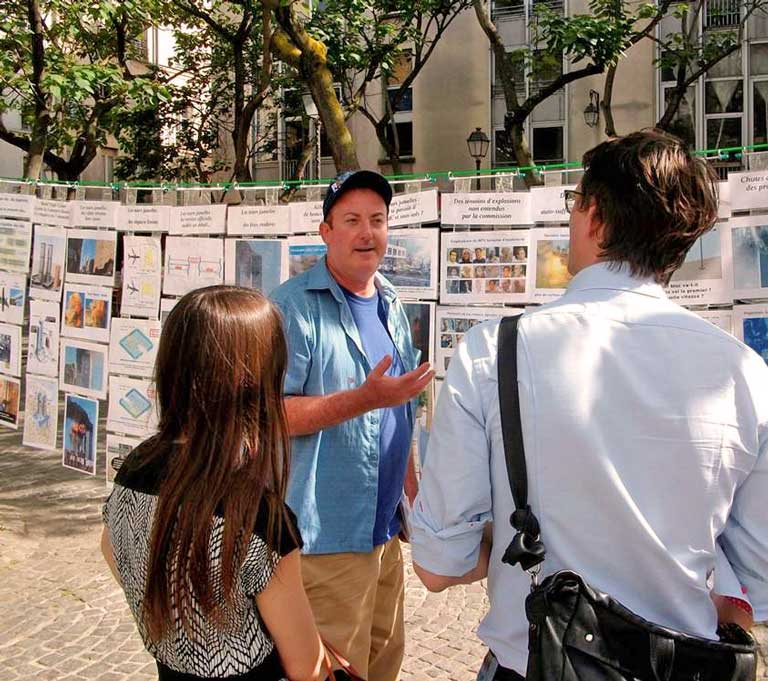
Coste and Smith believe that the SEFI chairmen were seeking an excuse to prevent them from presenting their paper. Indeed, the chairmen did not attempt to refute either the paper's data or the conclusions it drew about compromised ethics on the part of engineering trade journals, nor did they suggest any possible libelous statement or theme.
After attempting to appeal for reinstatement, the paper's authors were refused entry to the conference. They did, however, distribute copies of their paper along with an open letter protesting the unusual academic censorship. SEFI required the distribution be away from the conference building and within the public transportation corridor.
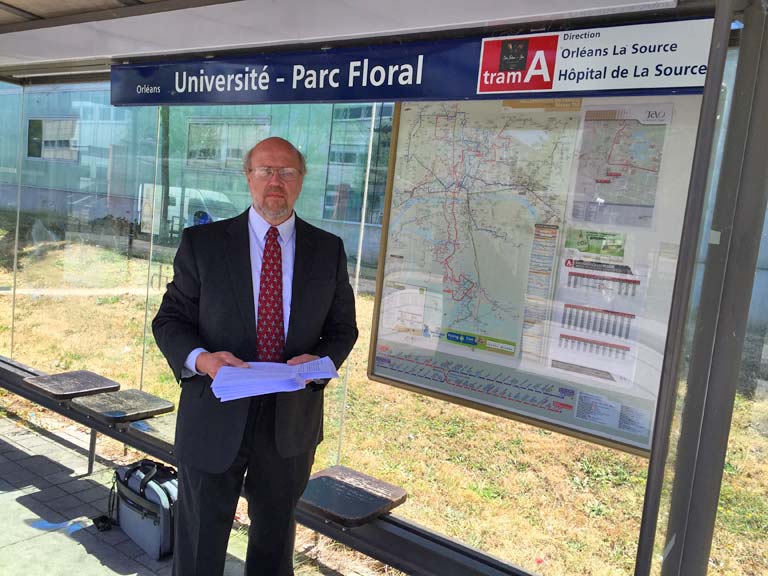
"By citing 'terrorist threats,' SEFI organizers implied that the political climate prevented them from reversing their decision," recounts Smith, referring to the latest mainstream news allegations of an upsurge in Islamic State attacks and threats against EU citizens. [The Islamic State is called “Daesh” in the European Union.] According to Smith, organizers claimed that the paper's controversial subject elevated the threat level at the conference. "Alleging that the discussion of a technical paper that upholds the primacy of Newtonian physics would raise the 'threat level' is a new risk factor that all high school teachers and university professors should be made aware of," Smith observes.
Upon being ordered to leave the conference building, Smith challenged Christophe Léger, SEFI chief organizer and president of École d'ingénieurs Polytech Orléans. He asked Léger if SEFI was "willing to violate its own code of ethics in order to censor a paper on ethics violations" — which Smith found to be a supreme irony. Léger's response? "He was speechless and walked away," Smith recalls.
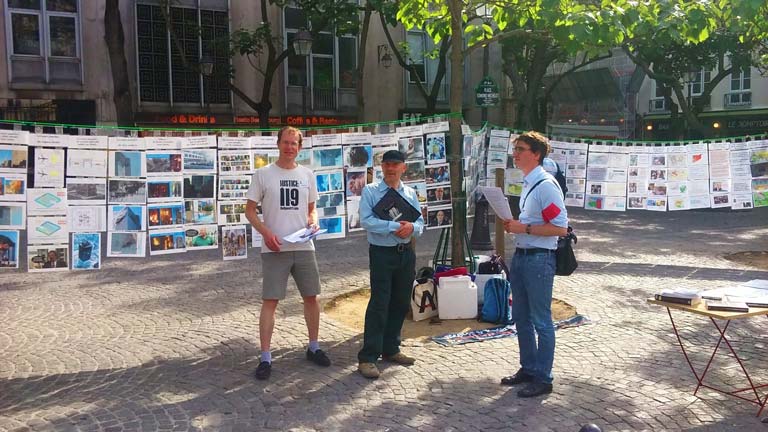
Case Study Highlights Flawed Science and Unethical Defense
The Coste-Smith-Korol case study examined the peer review process of the aforementioned Bažant piece. It pointed out that the industry journals had failed to use sound engineering analysis when attempting to authenticate information contained in the professor's submission, and as a result had allowed Bažant's unsupportable conclusions to be published. The paper by Coste, Smith, and Korol highlighted the risk to the engineering profession when such ethical lapses occur and it questioned whether organizations that represent engineers can be trusted.
As they make clear in their paper, Bažant’s gravity-only collapse hypothesis required that the majority of the structural material from the Twin Towers be found in the lobby area. Yet that hypothesis, the paper's authors insist, is supported neither by a cursory observation of the debris nor by basic Newtonian physics. Indeed, photographs taken at the site show that only a negligible amount of the structural material fell into the lobby area of the North Tower — thus contradicting Bažant’s claim.
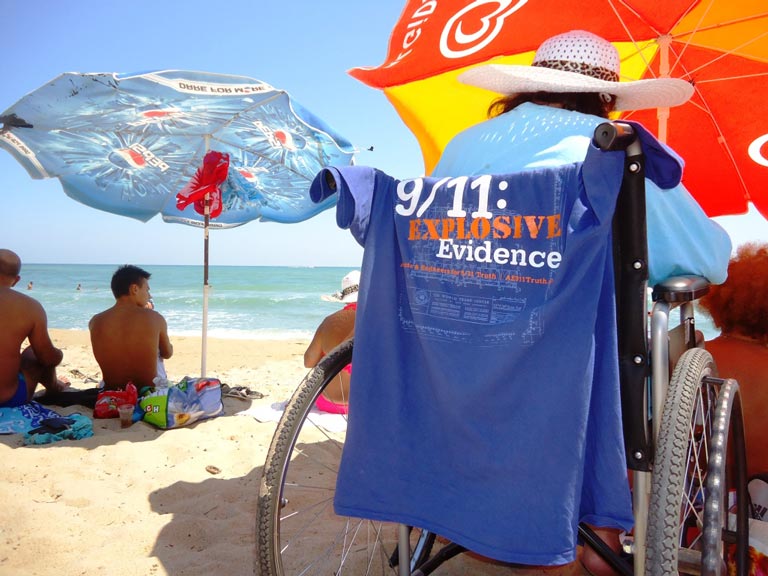 Even while on holiday, AE911Truth's supporters, such as this family vacationing at a beautiful beach on Bulgaria's turquoise Black Sea, don't take a break from sharing the 9/11 Truth message with the world.
Even while on holiday, AE911Truth's supporters, such as this family vacationing at a beautiful beach on Bulgaria's turquoise Black Sea, don't take a break from sharing the 9/11 Truth message with the world.
In a statement made to AE911Truth, Coste and Smith wrote: "If a conference such as SEFI 2015 cannot address the ethical lapses of the engineering peer review process, what venues are available to demand that engineers adhere to the ideals embodied in their various codes of ethics? Censoring discussions which demonstrate that a key article in a prominent engineering journal did not adhere to basic laws of Newtonian physics makes a mockery of SEFI's ethical statements. In addressing these questions, however, more is at stake than censorship, free speech, and ethical peer reviews. If these crucial issues are not interrogated with integrity, the engineering profession may one day wake up to find that its credibility to speak with authority on [other important] issues . . . has vanished."
Coste and Smith have created a website, Censored by SEFI, to make the industry and academia aware of SEFI's last-minute reversal of its decision and the ramifications of that reversal.
One Take Action page has a sample letter that can be sent to SEFI Sponsors.
The other Take Action page has a sample letter that can be sent to SEFI Member Institutions.
Also, the authors invite readers to forward their paper [English version, French translation, initial abstract] to other engineers and engineering institutions.
Their purpose, they say, is to show the world what academic censorship looks like and to point out the engineering profession's unethical attempt to politicize science in order to distort key evidence in the 9/11 WTC destruction.
They are counting on their fellow engineers to help their Facebook and Twitter campaign go viral.
In an interview on the 9/11 Free Fall show, aired on July 23, Coste and Smith discussed the issue further. The archived program can be listened to HERE.
